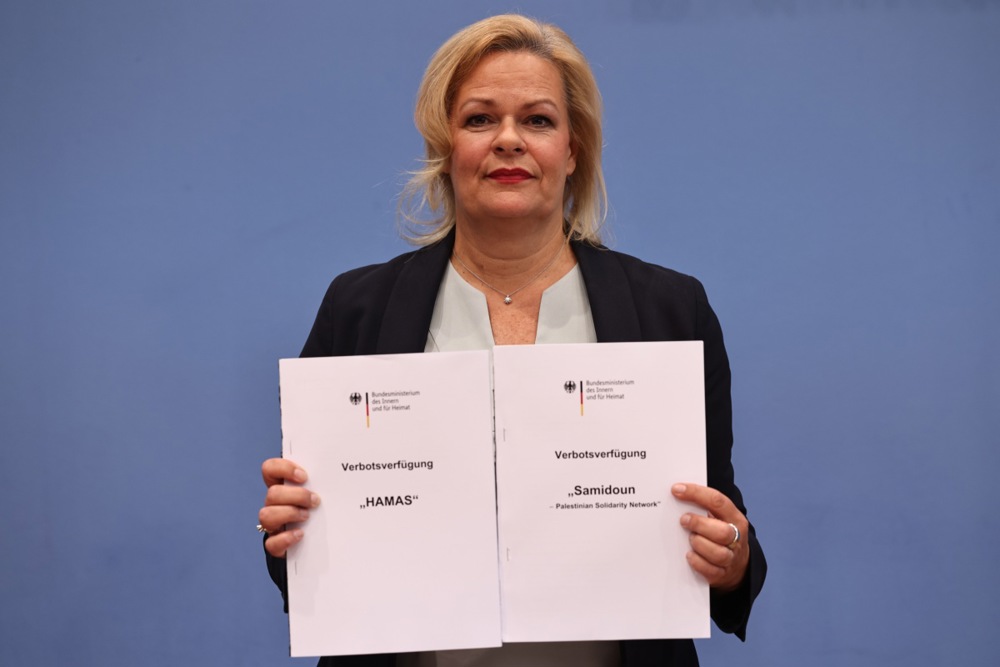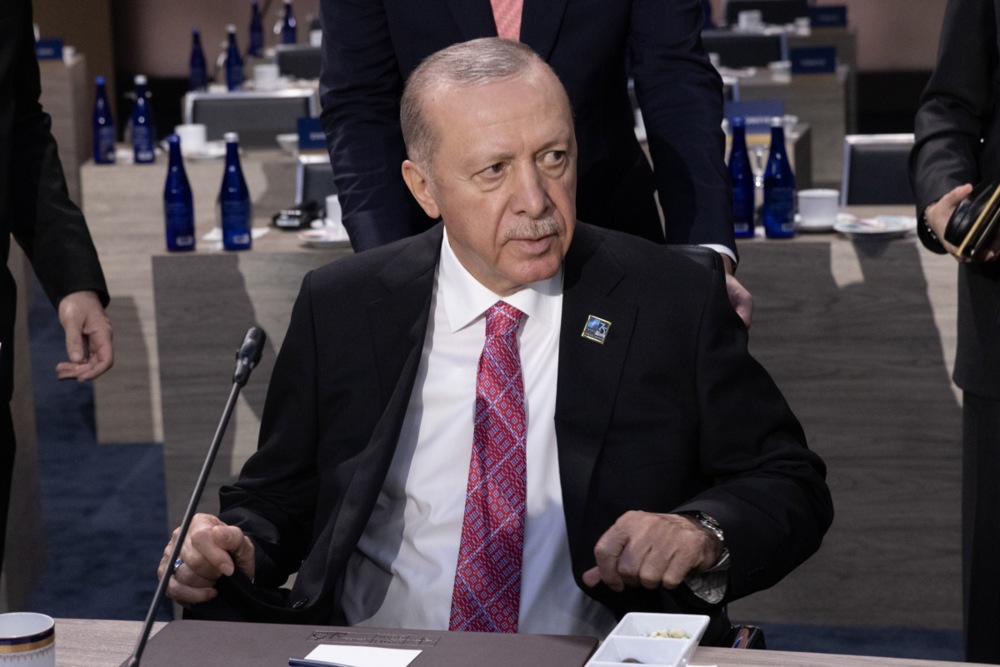Al Sharq Youth, a Turkish NGO funded by the European Union, has praised Ismail Haniyeh, the Hamas leader assassinated along with his personal bodyguard in the Iranian capital Tehran in an apparent Israeli attack on July 31.
At the beginning of August, the youth section of the international organisation Al Sharq Forum organised a special service for the late Hamas leader, French news outlet Le Journal du Dimanche (JDD) reported on August 14.
During what was termed the “last call of the martyr Dr Ismail Haniyeh,” which took place in Turkey’s Hagia Sophia Square on August 3, the youth wing of the EU-financed NGO commemorated the Hamas leader.
Hamas led the coordinated terrorist attack on Israel on October 7, where after an immense rocket barrage, an armed incursion from the Gaza Strip into Israel took place, leaving around 1,200 people dead with another 250 being kidnapped.
The day was labelled the bloodiest in Israel’s history and the deadliest for Jews since the Holocaust and sparked the ongoing war between Hamas and Israel
النداء الأخير من الش.ه.ي.د إسماعيل هنية
ندعوكم لمشاركتنا في ساحة آيا صوفيا من أجل إخواننا في فلسطين والأسرى في السجون الإسرائيلية بوصية الش.ه.ي.د إسماعيل هنية.
?️ السبت 3 أغسطس
⏰ 18.30
? ساحة آيا صوفيا
كونوا معنا لنوحد صوتنا ونؤكد دعمنا الكامل لأهلنا في غ.ز.ة وفلس.طين pic.twitter.com/m3fvz5GOQ9— Al Sharq Youth (@SharqYouth) August 2, 2024
Al Sharq Forum claims to be an “independent, international non-profit organisation that aims to consolidate the values of pluralism and justice, while developing long-term strategies and programs that contribute to the political development, economic prosperity, and social cohesion of the people of Al Sharq [The East] and the world,” according to the website of the Turkish NGO.
The Muslim Brotherhood has achieved so much influence in Brussels that local politicians now need its support to win elections, according to a French academic who researches the organisation. @FBBlackler https://t.co/LNoE64XzGu
— Brussels Signal (@brusselssignal) February 23, 2024
The Al Sharq Forum researches political Islam. It seeks to use religion to shape the political system in the perceived failure of secular ideologies.
Mohammad Affan, director of the Al Sharq Forum’s training centre, said in an interview with The New Yorker in 2012 that he was a former Salafist — a socio-religious movement within Sunni Islam — and that he had left the Muslim Brotherhood because it was “not subtle enough” politically.
These links with the Brotherhood and radical Islam did not stop the EU from donating money via Erasmus+, something Al Sharq shows on its website.

The European Commission via Erasmus+ has funded four projects of the youth section of the Al Sharq Forum from 2021 to 2023 with a total of €110,279, JDD found.
One Al Sharq project, which received €31,612 EU funding, was a community retreat, theoretically aimed at “bridging [the] intercultural, intergenerational and social divide.” The project was used to bring together its members from Palestine, France, Jordan, Morocco, Spain, Tunisia and Turkey.
Another project, which received €35,196, was aimed at helping the “professional development” of those taking part “through European practices,” with attendees originating from countries including Palestine, Algeria, Jordan, Lebanon, Libya, Morocco, Syria, Tunisia and Turkey.
One more EU-funded project was a workshop on strategic civic leadership in times of uncertainty. That received €24,716 and helped pro-Islam youth in “advancing their potential as young change agents concerned with European regional challenges to become effective catalysts leading social change within their societies.”
The Al Sharq fellowship youth dialogue workshop, a three-day Europe-focused workshop, was granted €18,755.
Critics wonder whether these projects have shown concrete results.
By contrast, the EU decided to cut its funding to Erasmus+ in Hungary on ideological grounds, according to observers.
Erasmus+ support happens via “indirect managing,” Brussels Signal discovered when researching a previous story on “dragtivism,” meaning an activity promoting drag. In 2022, the EU gave €25,000 to a project in Spain where young people between 16 and 25 took part in workshops on drag. What happened during the EU-funded workshop was disclosed when a secondary-school student posted a sexually explicit video of the project’s final showcase event on YouTube, when the youngsters went to a nightclub known to cater for sexual fetishes.
When Brussels Signal enquired about this, it was told that the Commission was not directly involved and was referred to the local organiser.
The European Union has again been accused of handing cash to an NGO linked to the Islamist Muslim Brotherhood. https://t.co/MAeK9QWHky
— Brussels Signal (@brusselssignal) September 29, 2023





